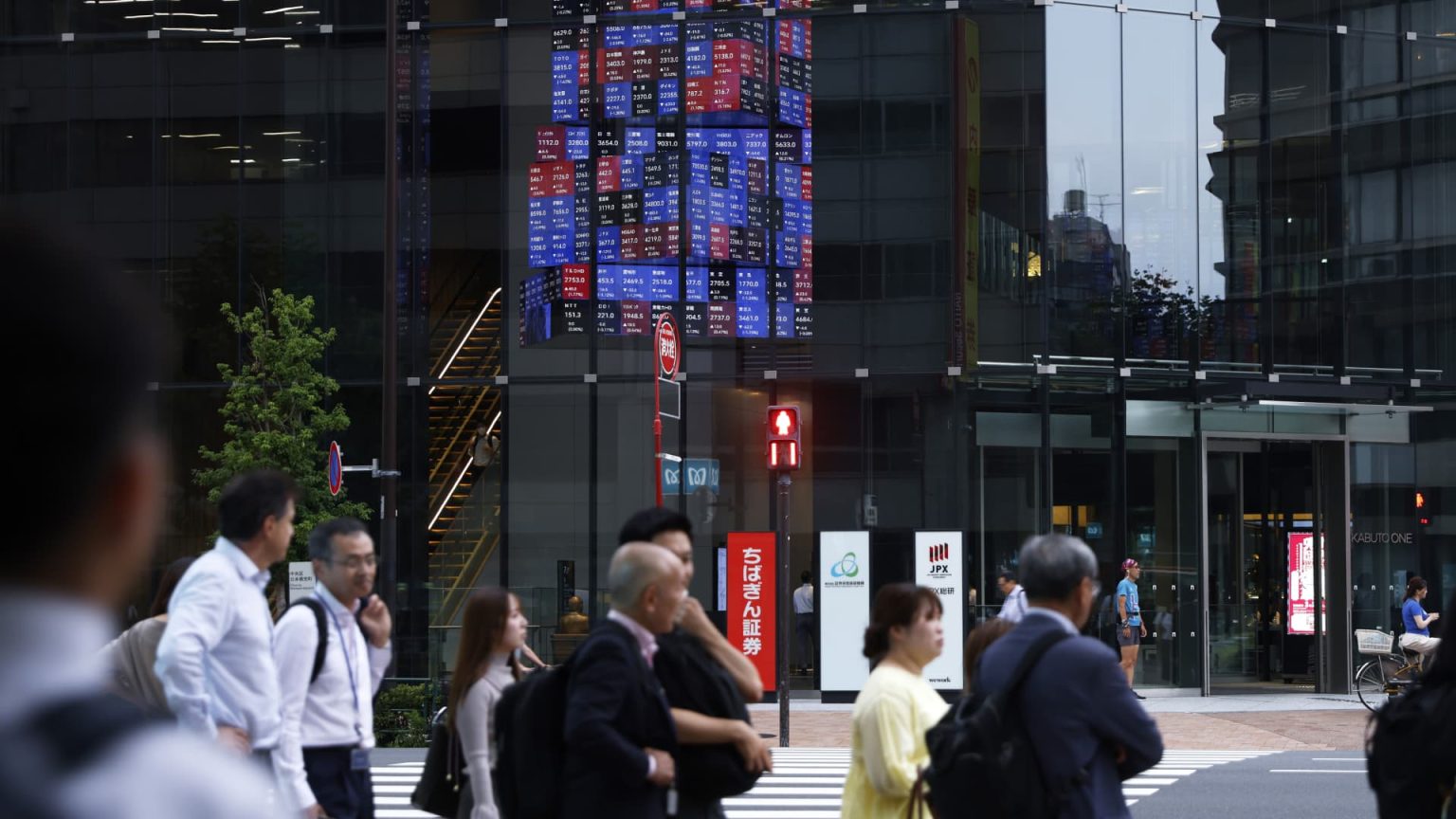The Asian markets, particularly Japan’s Nikkei 225, experienced a sharp decline of over 4% on its open, following a sell-off on Wall Street the previous day. The Nikkei extended its losses from the day before, leading the region with a 2.62% slide, while the Topix index also plunged by more than 4%. Other markets in the region also saw significant drops, with South Korea’s Kospi falling by 2.31% and Australia’s S&P/ASX 200 down by 2.07% from its all-time high achieved just the day before. Additionally, Hong Kong’s Hang Seng index futures indicated a lower open compared to the previous day’s close.
The gloomy sentiment in the Asian markets was largely influenced by the sell-off on Wall Street, which saw all three major U.S. indexes experience significant losses amid fears of a looming recession. The Dow Jones Industrial Average dropped by 1.21%, the S&P 500 shed 1.37%, and the tech-heavy Nasdaq Composite slipped by 2.3%. Even the Russell 2000 index, which had been rallying recently, saw a drop of 3%. The fears were exacerbated by fresh data suggesting economic contraction, such as a rise in initial jobless claims and the ISM manufacturing index coming in worse than expected, leading to a drop in the 10-year Treasury yield below 4% for the first time since February.
In South Korea, the inflation numbers for July came in slightly higher than expected, with the country’s consumer price index climbing by 2.6% year on year, surpassing the 2.5% expected by economists. This added to the overall bearish sentiment in the Asian markets, which were already reeling from the sell-off in the U.S. and concerns over a possible recession. Investors were also wary of the Federal Reserve potentially being too late in cutting interest rates in response to the economic slowdown, further contributing to the negative outlook in the markets.
The sharp decline in various Asian markets, particularly in Japan, South Korea, and Australia, reflected the broader global concerns over an impending recession fueled by the sell-off on Wall Street and disappointing economic data. The market sentiment was further impacted by uncertainties surrounding the Federal Reserve’s response to the economic slowdown and fears of potential interest rate cuts being too late to prevent further downturns. Investors were closely monitoring developments in the U.S. and global markets for any signs of stabilization or further volatility that could shape the trajectory of the markets in the near future.
Overall, the Asian markets’ reaction to the sell-off on Wall Street and disappointing economic data painted a bleak picture of the global economy, with concerns over a recession looming large. The sharp declines in key indices like the Nikkei 225 and Kospi reflected the heightened risk aversion among investors and the fragile state of the markets in the face of economic uncertainties. The coming days were likely to be volatile as market participants awaited further developments and indicators to gauge the direction of the markets and potential policy responses from central banks to address the economic challenges facing the global economy.


